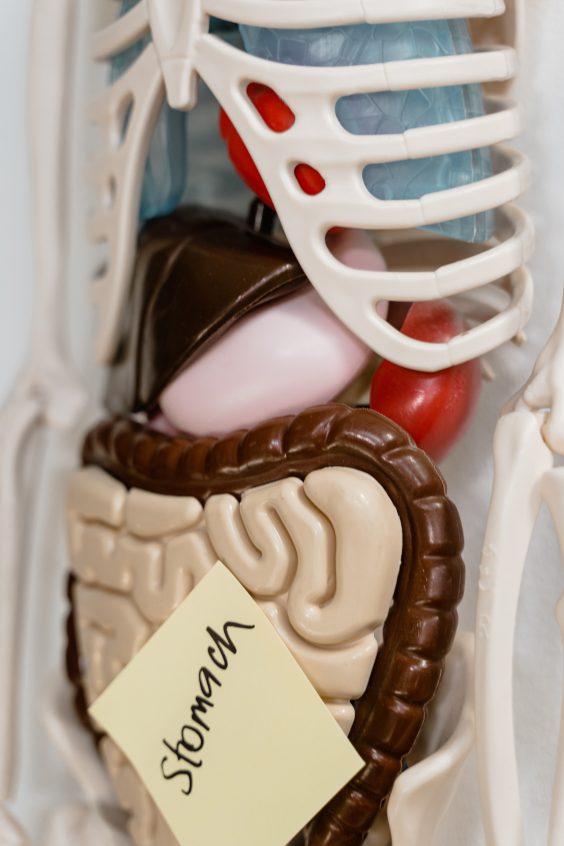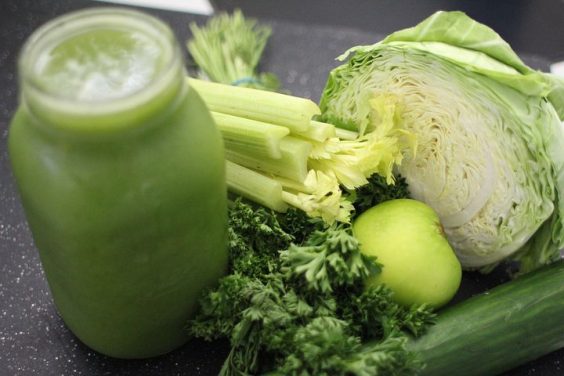Happy New Year! Now that January is here, are you worried that you indulged over the holidays and plan to go on a detox diet to shed a few pounds?
The answer to that question is: don’t. Here are five reasons why detox diets don’t work and can even be bad for our health.
1. Your organs are already detox machines
The liver is a filter, removing toxins from our food and medications, 24/7. One of the best things you can do for good liver function is to reduce consumption of alcohol and processed foods that are high in fat. So a great New Year’s goal might include reducing alcohol intake and eating more meals prepared at home. Your digestive system is another great natural detoxification system. By eating foods higher in fibre, such as fruits, vegetables, whole grains, beans, legumes, nuts and seeds, you help remove toxins through the bowel more efficiently. Preventing constipation is important as toxins can sit in the digestive tract for too long if not cleared regularly. Drinking water and eating fibre-rich foods help this system operate best. Your lungs help detoxify waste products as well through the exhalation of carbon dioxide, while the skin removes wastes through sweat. Going for a walk in nature and taking deep breaths raises your heart rate and helps you detoxify some more. Finally, the kidneys are incredible detoxifying organs, filtering the breakdown products from proteins, vitamins and medications, and excess salt.

2. Detox products make for expensive urine
Many claim that detox supplements and products are rich in antioxidants (chemicals found in nature that help to neutralize toxins that build up in the body). But when natural antioxidants are turned into powders, they lose a lot of their value through processing. The best antioxidants exist in nature, namely in brightly coloured fruits and vegetables. Spending money on fresh produce is a better way to detoxify than paying for costly powders, which ultimately turn into expensive urine. Other antioxidant-rich foods include green tea and most dried spices and herbs.
3. Juice cleanses are not nutritious
Juice cleanses are similar to being on a clear fluid diet, which means a diet low in fibre (a key cleansing food) and high in sugar (not great for health). Juices have no protein and result in a deficiency, especially if they’re used in longer-term cleanses. So weight loss might actually occur in the form of muscle mass loss. Muscle mass is the key component of our immune system, cardiovascular system, and strength in daily activities. Cleanses are expensive. Better to spend money on nutritious foods instead.

4. Detox diets are all about restrictions
Whatever the type of cleanse, they all promote restriction and dieting, or deprivation in order to achieve successful outcomes. But our bodies do best when we nourish them and honour our hunger cues rather than ignoring them. Restricting food can affect stress hormone levels, which increase inflammation and reduce our ability to build a strong immune system. Lower-fibre diets cause digestive issues that can become chronic problems, then requiring medications to treat. Dieting is both physically, emotionally, and mentally draining, and our goal is to replete and nourish for longevity.
5. Detox diets are not scientific
To date, no study has been published to show the benefits of a detox diet on any health outcomes, including weight loss. Initially, participants may have seen weight loss, but the weight and added kilograms were noted once the detox diet or cleanse ended. Unsustainable diets don’t make for healthy lifestyles. Rather than focusing on weight changes, paying attention to nutrient-rich foods and timely nourishment can lead us to more enjoyable meal experiences and better health overall.

By Dani Renouf, Registered Dietitian, St. Paul’s Hospital
Other stories by Dani Renouf:
IBS: Better managing a silent burden
Eating well while spending less amid spiking food costs





